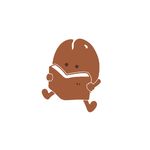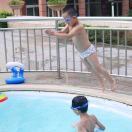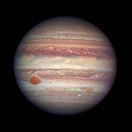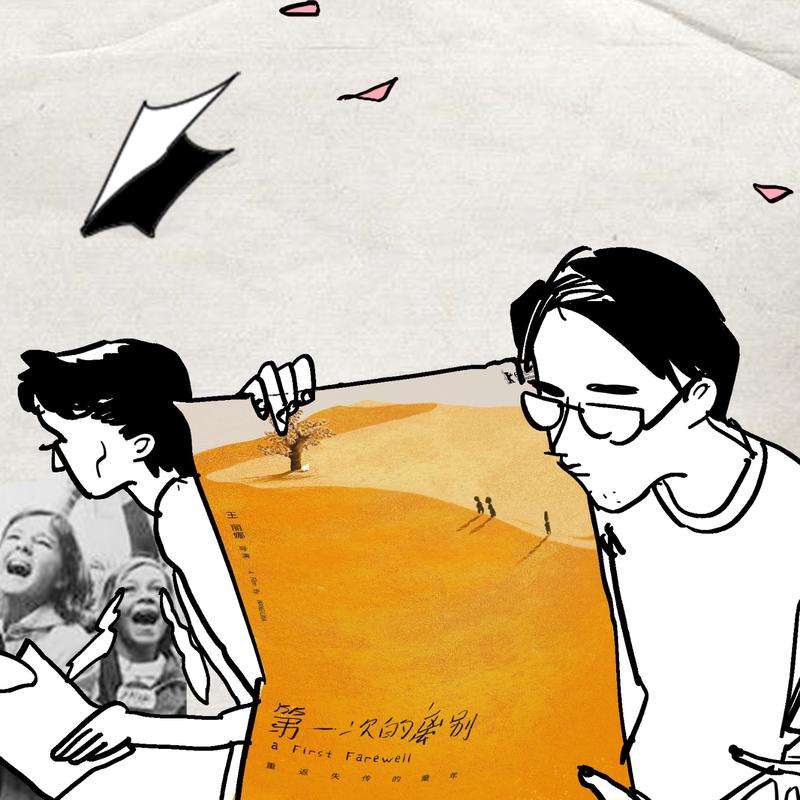
讲真,第一遍看完宫崎骏新作《你想活出怎样的人生》的时候,我没敢对这部片子的内地票房抱太大期待。尽管制片人铃木敏夫 声称在创作本片的时候没有刻意搞得很晦涩,但宫崎骏却在当中倾注了甚于他此前所有作品的感情、记忆,与自我的肖像,使之变得尤为私人化。这份独家记忆,能否唤起大家的共情?
好在结果让人宽慰。在今年的清明档期里,《人生》以较大优势领跑,并刷新了多项观影记录。借此机会,我特意邀请到吉卜力工作室作品的资深爱好者、影评人@陆支羽 ,一起试着解读下这部复杂而又真挚的动画电影。
(拉到最后,有惊喜⬇️)
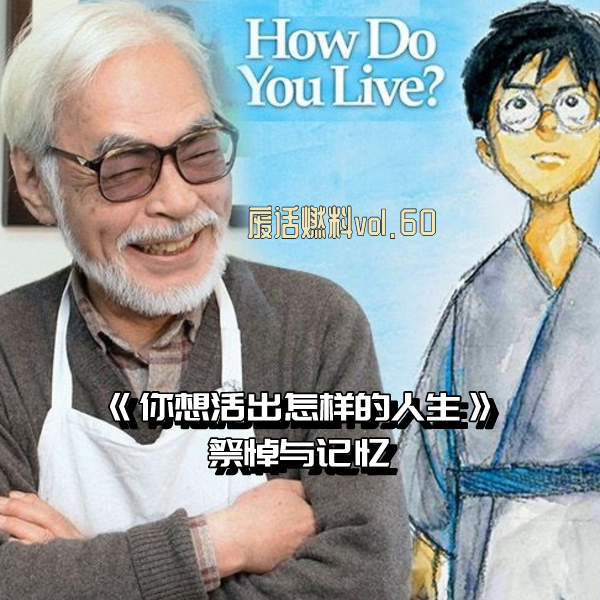
1:08 《人生》的引进成本超高,但目前已经回本
6:30 借由去年9月份的一次旅行经历,介绍《人生》在日本本土上映两个月之后的反响情况
9:05 《人生》击败《蜘蛛侠:纵横宇宙》拿到奥斯卡最佳动画长片的评述
11:55 十年前去吉卜力美术馆游玩的回忆
14:46 影片中的13块积木,代表宫崎骏独立执导的13部长片
21:57 对《人生》整体氛围感的理解,高畑勋 的影响
24:19 宫崎骏在《人生》中多次运用隐喻的原因
25:34 对“哇啦哇啦”的解读
27:47 片名与同名小说的渊源
29:32 两个母亲的形象
34:29 宫崎骏对飞行的狂热,鸟类,“苍鹭男”代表铃木敏夫
35:27 对大王鹦鹉的理解
36:36 木质v.s.石质,东方v.s.西方
38:36 从宫崎骏最近十年经历的老友消逝为起点的创作
40:51 两个对宫崎骏而言非常重要的人:吉卜力巨头高畑勋、色彩设计师保田道世
42:58 “雾子”对应保田道世,“太舅公”对应高畑勋
44:05 “火美”对应宫崎骏母亲美子
45:03 “苍鹭”对应铃木敏夫,谐音“欺诈男”的寓意
45:58 “塔”对应吉卜力工作室
47:11 原型之下,剧情中混杂着宫崎骏诸多的情绪碎片
48:03 夫娶亡妻姊妹的“顺缘婚”历史背景
49:39 大王鹦鹉作为强力的执行者,形象不全是负面的
51:58 关于大王的别样解读
52:51 《人生》中令人印象深刻的“宫崎骏时刻”
55:28 宫崎骏作品一以贯之的优势:色彩+技术
55:54 人物的形态和动态
57:54 对于刻画步态的卓越追求
58:28 开场奔跑镜头带来的惊艳
1:00:17 根据记忆创作的不稳定性
1:01:03 塞入主题的庞杂
1:05:10 吉卜力的暗面,死亡的想象
1:07:19 拍摄《人生》的意义,重新出发的宫崎骏
1:08:04 与下一代人的对话
BGM🎵:
米津玄師 (よねづ けんし)-地球儀 - Spinning Globe (地球仪)
久石让-最後のほほえみ
推荐观看:
📖《吉卜力的天才们》
📖《出發點》
📖《你想活出怎样的人生》
感谢国内发行方的支持,给听友们带来了一点小福利!大家在豆瓣播客《废话燃料NonsenseFuel》转发本期节目,并关注我的豆瓣账号,我将会抽出一位听友送出1张影片的IMAX正版海报,1张官方带塑封的海报,以及1本超限量特典画集~感兴趣的朋友不要错过,祝大家好运啦!
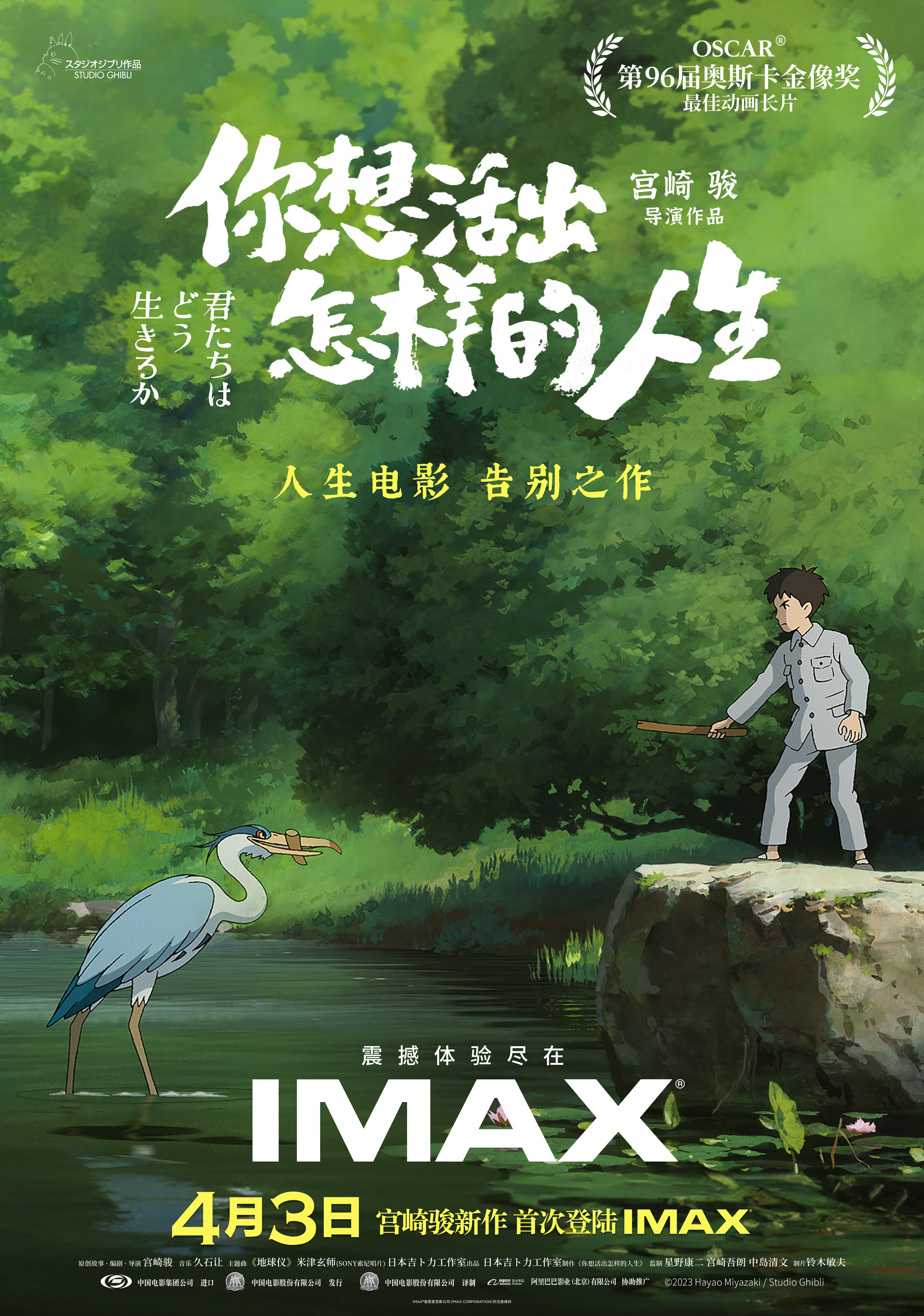
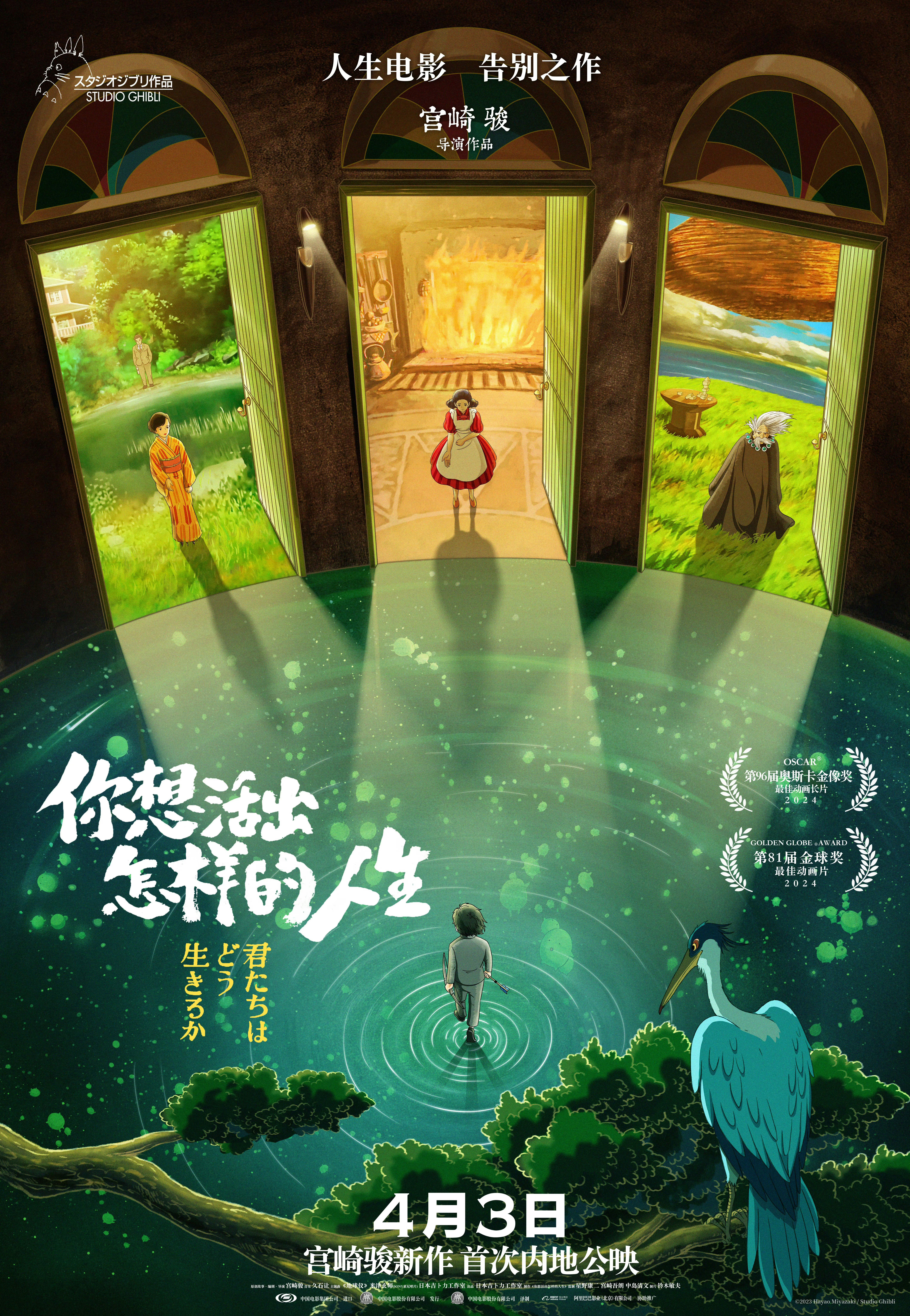
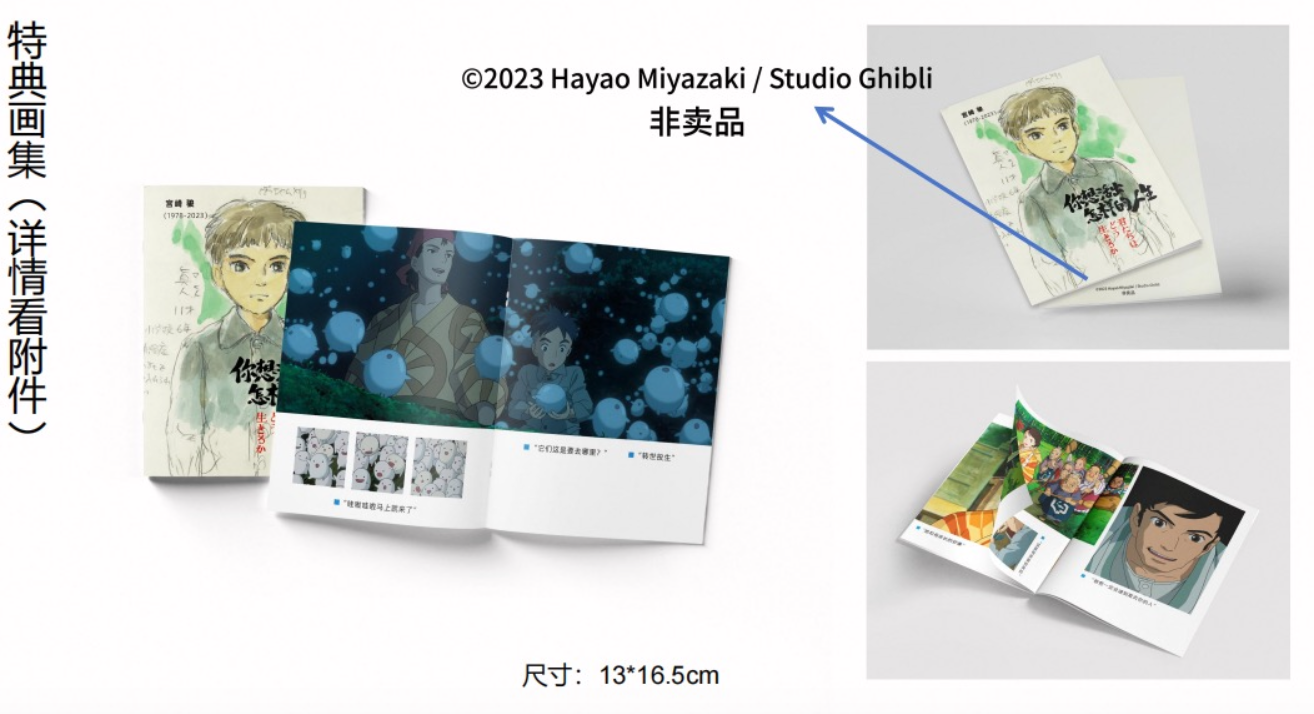
3件周边示意图,仔细看第二张海报图上真人的脚尖朝向,在三扇门所代表的三种人生中,他已经做出了自己的选择
Shownotes in English:
To be honest, after watching Hayao Miyazaki's new film "The Boy and the Heron" for the first time, I didn't dare to expect too much from this movie at the mainland box office. Although producer Toshio Suzuki claimed that he didn't intentionally make this film obscure, Miyazaki has poured more feelings, memories, and self-portraits into this film than in any of his previous works, making it particularly personal. Can this exclusive memory evoke empathy?
The good news is that the results are reassuring. In this year's Ching Ming Festival, Life led by a wide margin and set a number of viewing records. I'd like to take this opportunity to invite @Lu Zhiyu, a veteran of Studio Ghibli's work and a film critic, to try to interpret this complex and sincere animated movie.
1:08 "The Boy and the Heron" was super expensive to bring in, but has now paid for itself
6:30 Drawing on a travel experience from last September, a look at the response to "The Boy and the Heron" two months after its release in its native Japan
9:05 Commentary on Life beating out ‘Spider-Man: Across the Spider-Verse’ for the Oscar for best animated feature film
11:55 Memories of a trip to the Ghibli Museum of Art ten years ago
14:46 The 13 blocks in the movie represent the 13 feature films directed by Hayao Miyazaki independently
21:57 Understanding of the overall atmosphere of Life, Takahata's influence
24:19 Reasons for Miyazaki's repeated use of metaphors in Life
25:34 Interpretation of "wah-la-wah-la"
27:47 The origin of the title and the novel of the same name
29:32 The image of two mothers
34:29 Hayao Miyazaki's passion for flying, birds, Toshio Suzuki as "Heron Man"
35:27 Understanding of the king parrot
36:36 Wood v.s. stone, East v.s. West
38:36 Creative work starting from Miyazaki's experience in the last decade with the death of his old friend
40:51 Two people who are very important to Miyazaki: Ghibli giant Isao Takahata, color designer Hoda Michishige
42:58 "Kiriko" corresponds to Michishige Hoda, "Uncle Tai" corresponds to Takahata
44:05 "Hiromi" corresponds to Hayao Miyazaki's mother, Miko.
45:03 "Heron" corresponds to Toshio Suzuki, which means "fraudulent man".
45:58 "Tower" corresponds to Studio Ghibli
47:11 Under the prototype, the plot is mixed with many emotional fragments of Hayao Miyazaki
48:03 Historical background of "Shun Yuan Marriage" where a husband marries his deceased wife's sister
49:39 Maharaja's parrot as a powerful enforcer, not all of it negative
51:58 Different interpretations of the Maharaja
52:51 Impressive "Miyazaki moments" in Life
55:28 A consistent strength of Miyazaki's work: color + technique
55:54 Form and dynamics of characters
57:54 The pursuit of excellence in portraying gait
58:28 Amazing opening running shot
1:00:17 The instability of working from memory
1:01:03 The pomp and circumstance of cramming the subject matter in
1:05:10 The dark side of Ghibli, the imagery of death
1:07:19 The significance of making "The Boy and the Heron", Miyazaki's reboot
1:08:04 Conversation with the next generation
空空如也
